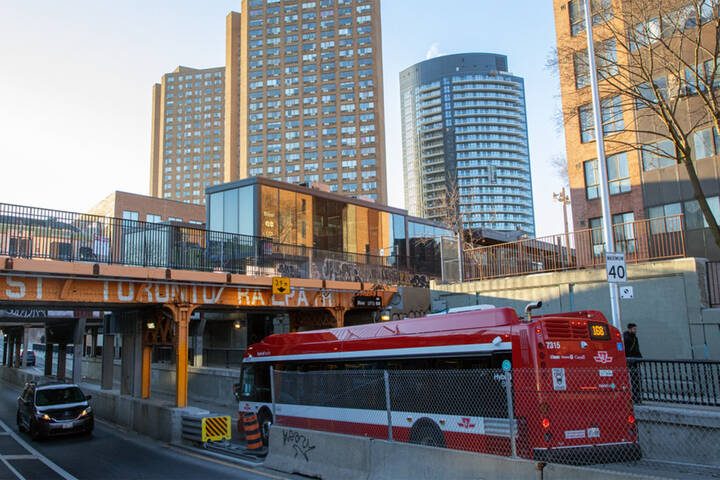
International students are worried about Canada's 20-hour work cap
Tens of thousands of international students in Canada are waiting in uncertainty for a decision to be made regarding the 20-hour work cap.
In just a few weeks, they will no longer be able to work 40 hours a week, as the pilot program that allowed them to work full time is set to expire.
Otherwise, students like Zuhaib ask, "Just to survive here, live here, what will I do?"
When Zuhaib landed in Canada for higher education earlier this year, he jokingly said he "killed" at the job search. By the time he reached Ontario, he was bombarded with job opportunities.
In the United Arab Emirates, Zuhaib had been working for nearly 15 years in his field. This experience led him to find a job as a full-time project control engineer within two weeks of being in Canada.
However, Deepti Mhaske's experience was not as simple.
Mhaske said she faced challenges when the cap was in effect, but she was able to receive a full-time offer "after a lot of struggle" this year.

Photo submitted by Deepti Mhaske.
However, both Zuhaib and Mhaske are unsure how long they will be able to continue working since part-time roles don't exist at their companies and the federal government has given no indication it won't soon crack down on their full-time earnings.
The temporary measure that both Zuhaib and Mhaske have been taking advantage of was announced last fall. This allowed eligible post-secondary international students to work more than 20 hours per week off-campus while class was in session. The change started last November and is ending December 31, 2023.
An Immigration, Refugees and Citizenship Canada spokesperson previously stated the measure is under review. However, the pilot will end in six weeks, and international students are worried about what their future will look like.
Zuhaib and Mhaske are pleading with the federal government to extend the work hours measure.
Back to working "survival jobs"
If the decision limits students from working more than 20 hours, Zuhaib and Mhaske fear they will be pushed into taking up odd jobs.
Considering the chronic labour shortages in Canada, Zuhaib emphasized it's why international students should be allowed to work more than 20 hours a week.
If they are not, he questioned, "Isn't it a sort of iron[ic] that a skilled person having a bachelor's degree in civil engineering, has the opportunity to find a job for himself and contribute to the Canadian job market, which is already struggling to find skilled people, [will be] bared… because [they]'re an international student?"
Amid increasing rental costs in the country, grocery prices and day-to-day cost of living, Zuhaib added, students impacted by the measure could be at risk of living "hand to mouth."
Before the measure was implemented, Mhaske encountered countless barriers when trying to secure work as an international student.
Initially, she considered herself lucky when she landed in Canada in 2021 because she found a part-time job in a field she had experience working in while living in India. However, because she could not work more than 20 hours, she said her contract was not renewed, and she lost her job in a matter of months.
She was back on the job market and said she was forced to work "survival jobs" – as she calls it. Mhaske explained that "survival jobs" are ones someone accepts to manage their expenses despite not liking the position.
She was able to find a full-time job this summer; however, if the 20-hour work week cap is declared for the new year, Mhaske said she will likely be back on the job hunt and may need to take up a "survival job" to get through graduation in the spring.
If the cap is limited to 20 hours, she said paying her tuition fees and day-to-day living expenses will become challenging.
To make matters worse, she pointed out that even if she finds part-time work, that may not guarantee employees work a full 20-hour week since work hours can vary from week to week.
Mhaske emphasized there is a stark difference in the way Canadian students and international students experience studying in Canada.
One example she suggested is the cost of tuition — and she's right.
There continues to be a wider gap when it comes to the fees international and Canadian undergraduate students pay.
In Canada, an average full-time international student will pay $38,081 for an undergraduate degree program in the 2023-24 school year, according to Statistics Canada. Meanwhile, Canadian students will pay $7,076.
In addition to the tuition fee differences, Canadian students can work full-time while studying, Mhaske added.
Even in the job search, Mhaske finds that Canadian students are preferred since they have experience working in the country, which is a qualification some hiring companies search for.
Students argue 20-hour work cap won't stop some
Even if students are limited to a 20-hour workweek, Zuhaib emphasizes, it won't stop some students who are desperate to afford to live in Canada.
"Putting a limit to students working 20 hours per week does not mean some students won't be forced to find loopholes," he said.
Mhaske added that she personally knows students working for cash jobs. However, since these positions are not regulated, these students face abuse from the employer side.
"I've seen, like, they also take undue advantage of students, especially international students, because… at that point, they were not legally allowed to work full time but still they were working."
Bank of Mom and Dad
As for international student Gagandeep Saluja, he said he may be forced to have a difficult conversation with his family back home in India.
The 24-year-old, who's currently working as a full-time security guard, said it took him months to find work when he arrived in Canada.
However, if he's forced to live off a part-time salary, he worries he will have to ask his parents to help him financially.
"It will be very difficult because they're getting old and have to manage their own expenses and I will be ashamed if I have my parents," he said.
The purpose of lifting the 20-hour-per-week cap was to "provide eligible international students with a greater opportunity to gain valuable work experience in Canada, and to increase the availability of workers to sustain Canada's post-pandemic economic growth," a spokesperson for Immigration, Refugees and Citizenship Canada explained.
Now, for these three students, their economic growth has been put on hold.
Immigration, Refugees and Citizenship Canada has said any decision to extend or expand the program will be communicated publicly.
V. Ben/Shutterstock
Latest Videos
Latest Videos
Join the conversation Load comments







